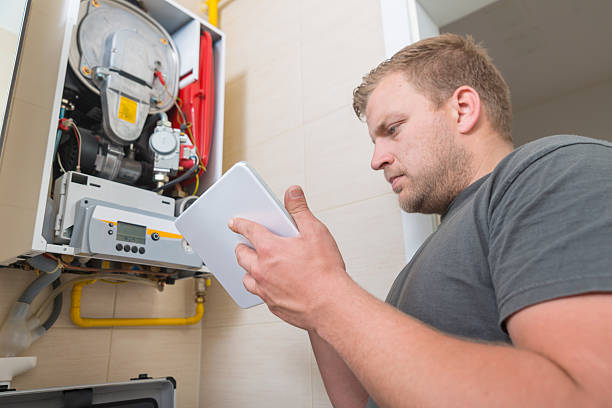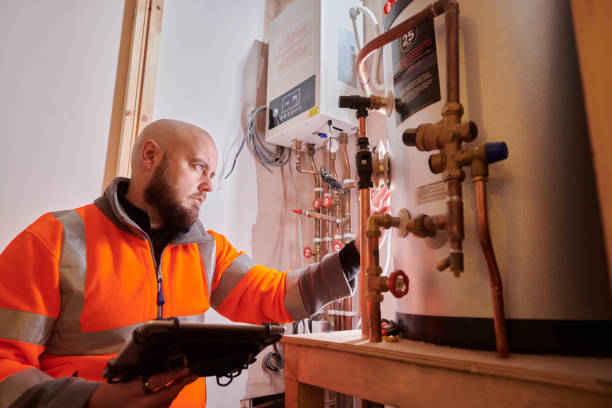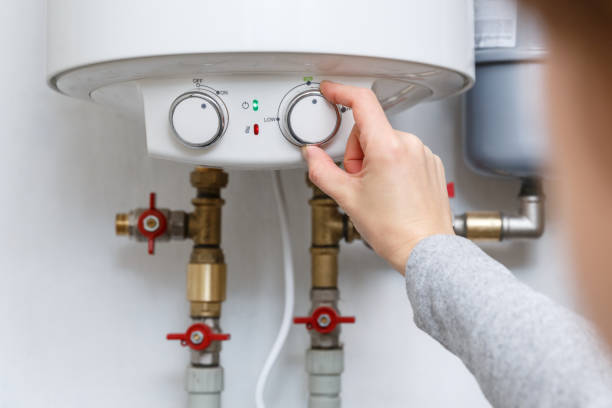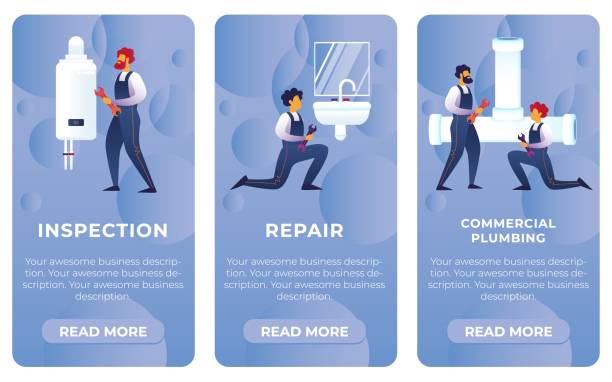If your radiator isn’t heating up, don’t panic just yet! There are a number of potential problems that could be causing this issue in your home’s heating system. Understanding what those issues are and how to troubleshoot them will help put you back on the road to cozy comfort before winter actually kicks in.
In this article, we’ll cover possible reasons why your radiator may not be producing heat and some strategies for getting it fixed as soon as possible. So, keep reading!
Potential Radiator Heating Problems
To understand all the nooks and crannies of radiator heating problems, we have compiled a list of these problems to help you address them in the best possible way. So, let’s get down to learning more about them.

1. Airlock
One possible problem with radiator heating is an airlock. This occurs when pockets of air get trapped within the heating system, preventing hot water from circulating properly and ultimately preventing the radiator from heating up. The problem may have occurred as a result of faults during radiator installation.
So, if you’ve noticed that some radiators are working while others are not, an airlock could be the culprit.
The effects of an airlock on radiator heating can range from the radiator being warm but not hot, to the radiator being cold to the touch. This can be frustrating and uncomfortable in winter months.
Solution:
Releasing the trapped air is relatively simple. You can do it by bleeding the radiator. This involves using a radiator key to open the valve at the top of the radiator, allowing the trapped air to escape.
It’s best to turn off the heating system before starting this process, and it’s recommended to call professional local gas engineers near me for help if you’re not comfortable doing it yourself.
2. Thermostat Issues
Without a functioning thermostat, your heating system may struggle to produce heat, or may run continuously, causing unnecessary energy consumption and higher bills. Faulty sensors or inaccurate calibration are two common issues which can affect the temperature readings and cause improper heating.
Solution:
To diagnose and address these issues, it’s important to check and adjust the thermostat settings, including the temperature set point and the heating schedule.

3. Blocked Pipes Or Valves
This can be a common culprit behind a malfunctioning heating system. Usually, it’s a buildup of sediment, sludge, or debris that’s causing the blockage. This, in turn, can lead to the lack of hot water circulation and reduced heat output from your radiators.
The impact of blockages can be significant; not only does it cause discomfort in cold weather, but it also increases energy bills as your system works harder to compensate for the blockage.
Solution:
You can opt for the following ways to fix this issue:
- Call professional plumbers Birmingham or gas engineers to clean or replace the blocked pipes or valves.
- A simple cleaning may be required.
- Detect blockages early on and prevent disruptions in the future.
4. Radiator Valve
This valve controls the amount of hot water entering the radiator and is responsible for maintaining a consistent temperature in your living space.
A faulty valve can cause your radiator to stop producing heat, which can be frustrating, particularly during the winter season. One clear sign of a faulty radiator valve is if the radiator gets warm at the bottom but remains cold at the top.
Solution:
You can:
- Flush out dirt or debris and replace the valve spindle.
- Install a new valve altogether, depending on the severity of the issue.

5. Issues With The Boiler
If your radiator isn’t producing heat, there could be several underlying issues with your electric boiler Birmingham. One common problem is a faulty pump, which can cause issues with the distribution of hot water throughout your radiators.
Another potential culprit is a clogged or blocked pipe, which could restrict the flow of water and impede heat distribution.
Solution:
It is important to look for a professional boiler repair Birmingham to diagnose and fix these problems promptly before they escalate and become more costly. You can trust a licensed plumber or gas engineer for safe and efficient boiler service Birmingham to keep you cozy and comfortable all winter long.
6. Inadequate System Pressure
Proper system pressure is crucial for efficient radiator heating during winter. Inadequate system pressure may be caused by leaks or system malfunctions, resulting in your radiator failing to produce enough heat.
Symptoms of low system pressure include cool spots on your radiator and repeated bleeding of air from your system. These issues can easily be resolved by adjusting the system pressure as per manufacturer instructions.
However, it’s important to note that over-pressurizing your heating system can lead to dangerous leaks or system malfunctions, which can be costly to repair.
What To Do If Your Radiator Is Not Heating Up?
Apart from the aforementioned solutions to the radiator heating problems, let’s get down to discussing the generic answer to all your heating issues:
1. Call For Professional Help
We highly recommend calling a professional plumber or gas engineer to perform regular boiler service, including checking the system pressure and addressing any issues accordingly.
They can advise on the best pressure range to maintain and prevent any future heating-related problems in your home. Don’t let inadequate system pressure ruin your cozy winter nights. Contact your gas engineer or local plumber in Birmingham today!
2. Check The Power Supply
Power supply is a crucial component for ensuring that your radiator operates efficiently and effectively. Before troubleshooting any radiator issues, it’s important to check the power requirements for your specific model.
Make sure that the power supply meets the necessary voltage and amperage ratings, as any mismatch can result in inadequate heating or even damage to the unit.
3. Keep A Check
Checking the power supply for electrical issues is a good starting point. Circuit breakers, fuses, and other potential power-related problems should be examined and repaired promptly to avoid further complications.
4. Solve The Issues
First and foremost, try unplugging and replugging in the unit. You can test the outlet with a different device, and ensure that the wiring is free of any damage.
If nothing works for you, contact a professional electrician or heating specialist for more advanced power-related issues to ensure your safety and prevent any further problems from arising.
Check out: 5 Steps to Take When Your Radiators Won’t Heat Up.
Professional Assistance
When it comes to issues with your radiator, seeking professional assistance is key. Not only can a skilled plumber or gas engineer diagnose the problem quickly and accurately, but they also have the expertise to safely and effectively repair or replace your heating system.
For those searching for plumber near me Birmingham, boiler repair, local gas engineers, and radiator repair persons can help you find a reputable professional.
Remember, don’t risk further damage or inefficiency with a DIY fix – call in the experts to ensure a warm and comfortable winter.

The Bottom Line
A well-functioning radiator is essential for providing warmth and comfort in your home, especially during the harsh winter season.
A malfunctioning radiator can cause discomfort and inconvenience during the colder months of the year. As much as it is important to identify the possible reasons why your radiator is not producing heat, it is equally crucial to seek professional help from a qualified plumber or local gas fitters Birmingham for an accurate diagnosis and resolution.
So, don’t hesitate to call on local plumbers, gas engineers, and radiator repair specialists in Birmingham to ensure that your heating system is running smoothly.
